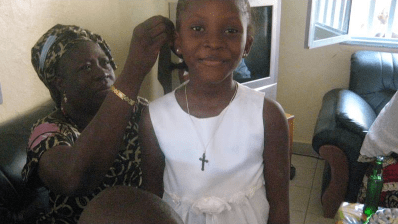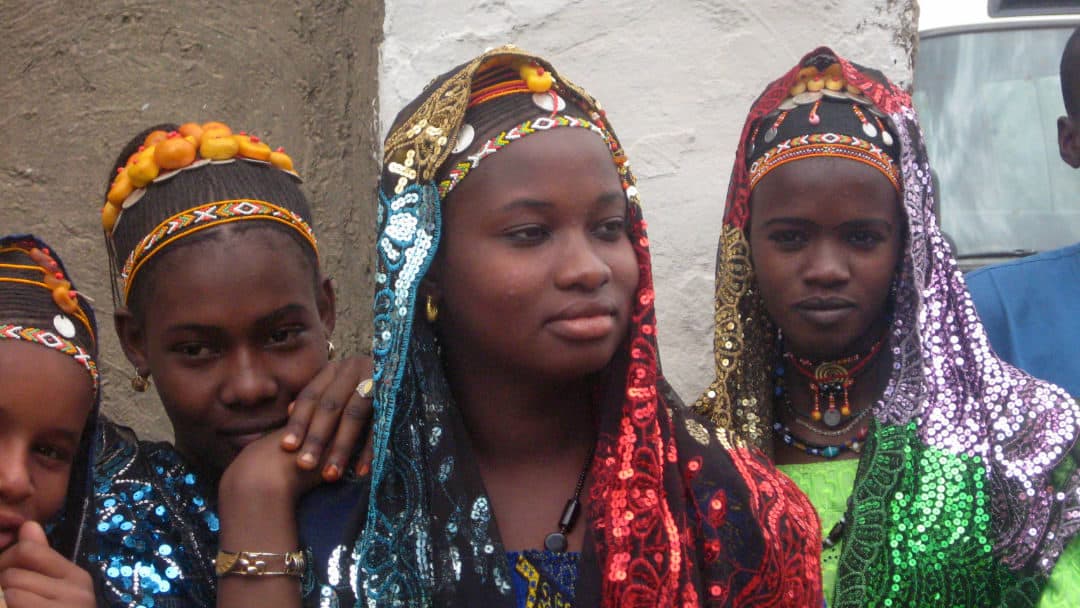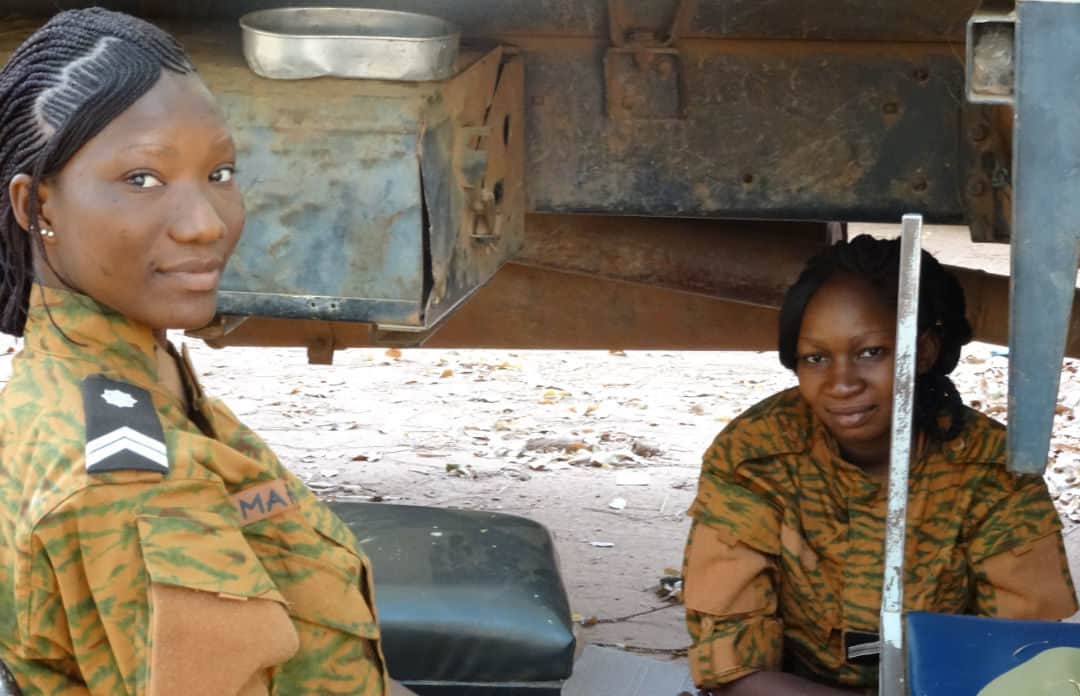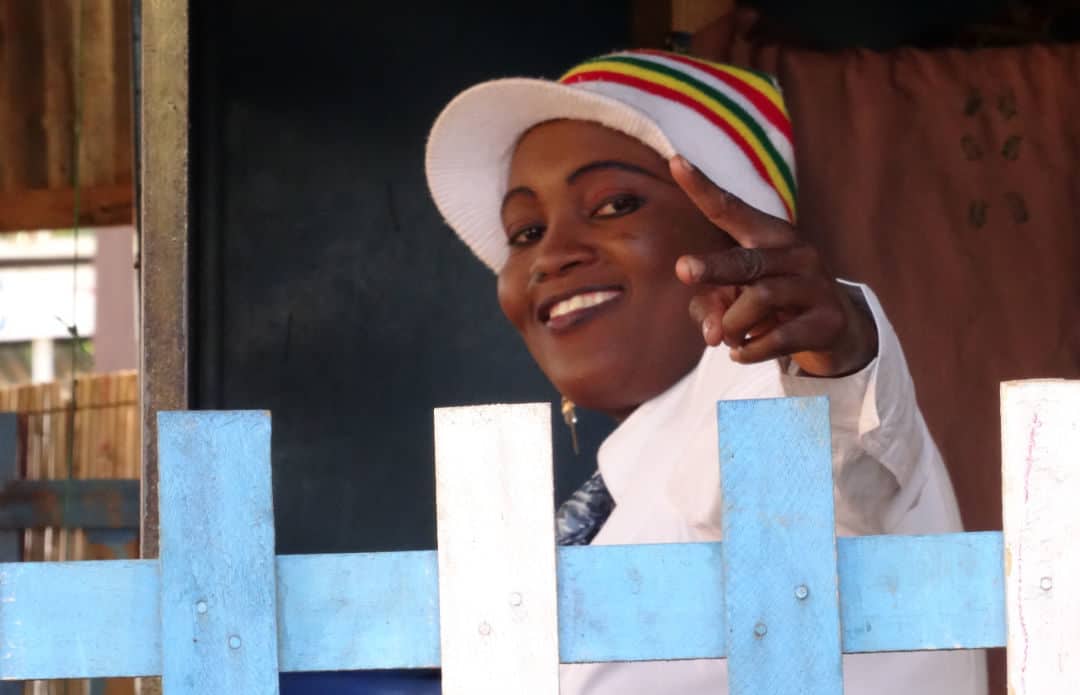Religious Tolerance and Social Peace
 The Global Peace Index, the world’s leading measure of national peacefulness and absence of violence in 162 countries, ranked Burkina Faso amid the 5 best African countries from 2008 until 2014, leaving the other African countries far behind (198). After Compaoré’s departure, the country’s statue dropped 40 ranks, from 48 in 2014 to 88 in 2016 (199).
The Global Peace Index, the world’s leading measure of national peacefulness and absence of violence in 162 countries, ranked Burkina Faso amid the 5 best African countries from 2008 until 2014, leaving the other African countries far behind (198). After Compaoré’s departure, the country’s statue dropped 40 ranks, from 48 in 2014 to 88 in 2016 (199).
Strongly attached to the principle of state secularism, Compaoré paid great attention to maintaining balance and preserving harmony in a country peopled with 62 % Muslims, 23 % Catholics, 4 % Protestants and 7 % Animists (200). He succeeded by promoting the inclusive participation of traditional and religious leaders to policy programs and society issues (201).
State schools are secular, but private schools are increasingly confessional. In 2014, more than 60% of private schools were madrassas. Considering the madrassas as an important pillar for reaching universal education, Compaoré’s administration put into place the program PREFA, to enhance quality education at these schools, while ensuring the respect of sex-equality rules and Burkinabè values such as tolerance and the rule of law. The Islamic Development Bank (IDB) was a major partner of the PREFA program (202).
Ethnic Tolerance
In a fascinating map of ethnic and racial tolerance published by the Washington Post in 2013, Burkina Faso was Africa’s champion. More than 60 different ethnic groups were living peacefully together thanks to a balanced attention to each ofthem, which is a rare phenomenon in this 21st century world (203). Compaoré always carefully looked after the preservation of a relatively well-balanced sharing of government and administration positions among ethnic groups (204).ethn
Minority Rights
Minority rights were generally respected in Compaoré’s politics (205). Same sex marriage was not permitted by law. But same-sex sexual activities were legal in Burkina Faso and, since 1996, the age of consent was equal regardless of sex (206).
Women’s Rights
While illegal gender discrimination remained common, particularly in rural areas, Compaoré has personally and successfully promoted women’s issues: Wikileaks (207). He definitively gave women a bigger role in public life.
In 2009, a law by decree fixed a minimum quota of 30 %for either sex in legislative and municipal elections. Furthermore, women victims of violence or violation of their rights benefited from free counselling and gender-based scholarships were granted to girls.
Affirmative action in various areas, from university access to politics as well as to the military, was not the only way to greater equality for women; the 1998 Family Code improved the judicial status and the social protection of women and children. Texts reorganizing agrarian and property rights conferred men and women the same rights (208).
Human Rights Abuses
Female genital mutilation (FGM): Thanks to the personal engagement of Blaise Compaoré and his wife Chantal, Burkina was leading Africa in the fight against female genital mutilation (209).
“Burkina Faso has shown great leadership and success in supporting the African-led movement to eliminate FGM and is an excellent example for the international community and the rest of Africa. I have come to visit Burkina Faso because I want to learn from these successes”
Lynne Featherstone
UK International Development Minister
January 30, 2014
As a result of financial and legal support from the government and the involvement of more than thousand people on a national, provincial and local level, FGM was about to be eradicated, not only by severe punishment but also by the changing attitude of judges and local police along with that of the general population (210).
The government program “Zero Tolerance” was extremely effective. Human rights groups have recorded a tremendous drop in the prevalence of female genital mutilation since its criminalization in 1996 (211). Other African NGOs, government officials and scholars involved in the fight against FGM frequently paid visits to Burkina in order to learn the best practices (212).
Mrs. Compaoré championed the U.N. Resolution N° A/RES/67/146 aimed at intensifying global efforts to end FGM. On November 26, 2012, the Resolution was approved (213).
Violence by military and police: Human rights advocates in Burkina Faso have repeatedly criticized excessive force and violence used by policemen and military. Also, pretrial detention limits were often disregarded. The sentencing in August 2011 of three police officers charged with the torture and death of a student named Zongo was seen as a positive step: Amnesty International (214).
Green lines: Compaoré’s administration installed green lines, toll-free and anonymous, to report cases of human right abuses such as female genital mutilation (215), and cases of violence against children. Regarding the latter, the authorities recorded 1,815 calls in 2013 (216).
Human Trafficking: In July 2005, Burkina Faso signed a multilateral cooperation agreement to combat child trafficking. Although Burkina Faso does not fully comply with the minimum standards for its elimination, the government continued to take significant steps to combat trafficking in persons, including children. In 2011, 1,112 children were intercepted from traffickers (217).
Human Rights lessons obligatory at school: Since 2014, Human Rights lessons have been a mandatory part of the curriculum in the nation’s primary schools (218).
Right to Protest
Although the country has witnessed many severe protests, prohibiting a protest was extremely rare during the Compaoré’s era (219). The country experienced several times series of severe protests, notably from December 1998 until May 1999 following the assassination of the journalist Norbert Zongo, in April 2011 against the high cost of living and in June and July 2013 large demonstrations opposed alterations to the constitution and the creation of a new Senate. The protests successfully stalled the creation of the Senate (220).
Although in October 2014, following the announcement of the controversial bill to change the Constitution allowing Compaoré a fifth term on October 21, 2014, immediate protests by his administration were expected, Compaoré authorized all manifestations in Ouagadougou and Bobo Dioulasso from October 21 until curfew on October 30 (221). This complete freedom of protest during the Compaoré era was recognized by Freedom House (222).
Civil Society
The freedom to associate has generated a particularly dense network of associations. The existence of 140,000 associations are a testimony to the vitality of democratic expression, in terms of civil and political rights and liberties (223).
Main political pressure groups and leaders in 2014: Freedom House (224):
- Balai Citoyen [Herve KAM]
- Burkinabe General Confederation of Labor or CGTB [Bassolma BAZIE]
- Burkinabe Movement for Human Rights or MBDHP [Chrysigone ZOUGMORE]
- Burkinabe Society for Constitutional Law or SBDC [Abdoulaye SOMA]
- Center for Democratic Governance or CGD [Thomas OUEDRAOGO]
- Coalition for African Renaissance or CAR [Hervé OUATTARA]
- National Independent Union of Burkinabe Magistrates or SAMAB
- National Union for Health Workers or SYNTSHA
- National Union for Primary Education Teachers or SNTEB




